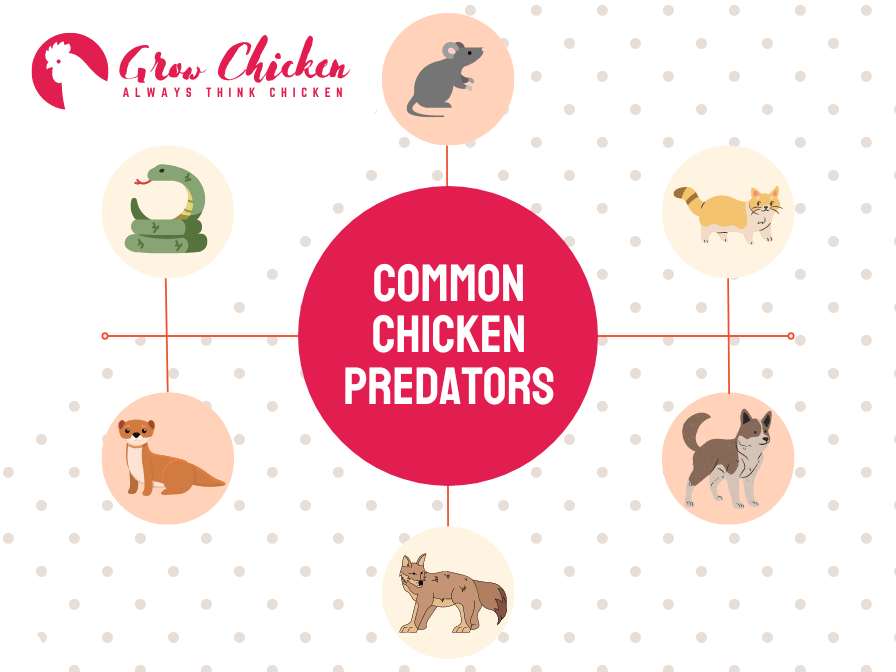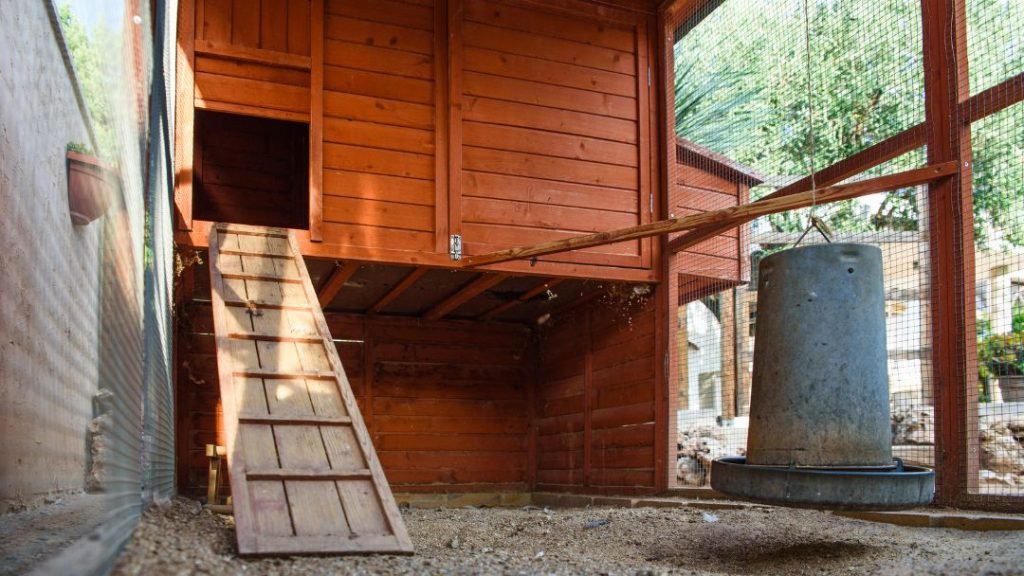Elevated chicken coops are trendy for both backyard chicken coops and commercialized farmers. If you are thinking of making or buying a chicken coop, you might consider choosing a single-level or multi-level flock house.
Should a chicken coop be elevated? It is not compulsory to set up an elevated chicken coop. But it offers some distinctive benefits, such as optimal protection from dangerous predators, minimal moisture buildup, increased free-range area, better utilization of small spaces, higher protection from snow or flooding, etc.
Should A Chicken Coop Be Elevated?
Off–ground chicken coops have now become a common practice among backyard gardeners.
But when should you set a chicken coop off to the ground? The following are vital points that increase the importance of installing elevated flock houses.
01. Optimal Protection from Predators
If your living location has many dangerous predators that put a threat to chickens, elevated chicken coops are a must.
Single-level flock houses give easy access to coyotes, foxes, bobcats, rodents, snakes, foxes, etc.
But off-ground chicken homes make it harder for predators to enter the coop quickly. It will keep your birds safe.

02. Simple Accessibility
Ground-based chicken coops are a little bit harder to clean. You may not have enough accessibility even after bending a lot.
But, if the chicken coop is only 10 to 12 inches away from the ground, it makes your cleaning session effortless.
You don’t need to bend and end up having back pain. This will motivate you to continuously track your flocks and serve food and water on time.
03. Less Dusty Conditions
Do you live in a city where a dusty environment is a common problem?
Keeping your chickens off the ground means they are far away from the dusting area.
However, ensure the flock house is not exposed to the outside environment. Otherwise, grounds or off-grounds don’t matter at all.
04. Protection from Snowy Weather
Snow and ice are common during extreme weather conditions. Heat-tolerant chickens may even die if snow directly touches their body.
Elevated houses are relatively safer for flocks who can’t tolerate snowfalls.
But, maintaining the optimal insulation around the coop wall is crucial.
05. More Free-Range Area
Chickens don’t like to confine themselves in a small space. They love to wander around and enjoy nature.
Elevated chicken coops are the best choice if your backyard has limited space.
Birds will move freely on the ground and eat and sleep on the raised house.
Flocks get the maximum amount of free-range space. It ensures the optimal utilization of space.
06. Safety against Rains and Floods
Chickens don’t like to stay in a moisture-based environment.
Keeping their body exposed to water for a long time will result in Alektorophobia issues.
It also causes stress and changes their behavior patterns.
An elevated chicken coop can be a perfect solution to protect flocks from rain and floods.
07. Better Air Circulation
Compared to the ground floor, off-ground floors have higher air circulation.
An elevated flock house will receive more air from the surrounding environment. As a result, the interior area will maintain a dry condition.
On top of that, it appears a more practical choice to keep flocks cooler during hotter months and warmer during colder months.
You will have to invest less in buying additional coolers or heaters to maintain a comfortable temperature.
08. A Comfortable Sheltering Area
Chickens can’t keep themselves highly exposed to sunlight. They may even face heatstroke issues from overheating.
A raised flock house is a cost-effective option to provide a sheltering zone. You don’t spend additional money to create it.
Apart from sunlight, it will protect birds from rain, snow, and ice. Make sure its construction is solid enough to take the load.
09. Alternative Use of the Ground Space
You can use the elevated chicken coop’s ground space to store different items.
Storing the food and supplies of the flock is possible too.
But, make sure to keep it adequately enclosed to protect it from various types of predators.
10. More Space for Chickens
If you don’t want to use the ground space for storing anything, utilize it to keep more chickens.
Each flock can move, rest, and sleep comfortably due to additional space.
But it requires a slight modification to use the remaining space ideally. It is still worth the effort to raise more chickens.

How Much Should A Chicken Coop Be Elevated?
There is no hard and fast rule regarding how much a chicken coop should be elevated. It can be anywhere between one foot to three feet.
Some chicken keepers even make it only eight to ten inches off the ground. It is more practical for smaller chicken coops.
But if your flock house is pretty big, keep the distance at least one foot from the ground.
You can raise the chicken coop height by adding elevated legs. However, they need to be strong enough to support the entire load of the chicken coop.
If you add strong legs, the height can be as high as four feet.
Again, maintaining proper balance among all sides is the key. Otherwise, it will likely become weaker over time and may break unexpectedly.
Do Larger Or Smaller Chicken Coops Need More Elevation?
Larger flock houses need to be more elevated than smaller chicken coops.
More space in a bird home means it can withstand heavier winds in an elevated area. Plus, you can add built-in raised legs to support their stand strongly off the ground.
But smaller chicken coops are lightweight. They don’t have too much space.
Their legs will not be perfectly balanced if you keep them in a much higher position. Their overall construction will be vulnerable to becoming weaker over time.
In fact, many chicken keepers use five to six-inch legs to keep flocks protected from rats and rodents.
When Chickens Don’t Need Elevated Coops?
Most chickens need multi-level houses to keep them protected.
If there are no dangerous predators in your house, and your living location is perfect for raising chickens without any extreme weather conditions, you can raise chickens single-level house.
However, this type of condition is impractical as chickens face various kinds of problems while living in ground-based coops.
If you can’t make or buy more than one foot-raised chicken coop, keep it at least eight to ten inches to provide a minimal safety environment.
Final Thoughts
Are you still wondering about this question: Should a chicken coop be elevated? Raised flock houses are an excellent choice to protect them from extreme weather conditions.
More importantly, chickens will feel safe from dangerous predators. However, the overall construction and design of the coop must be solid enough to support their well-being.
Otherwise, the elevated chicken house will become weaker and may even fall on the ground if not built correctly with high-quality items.



